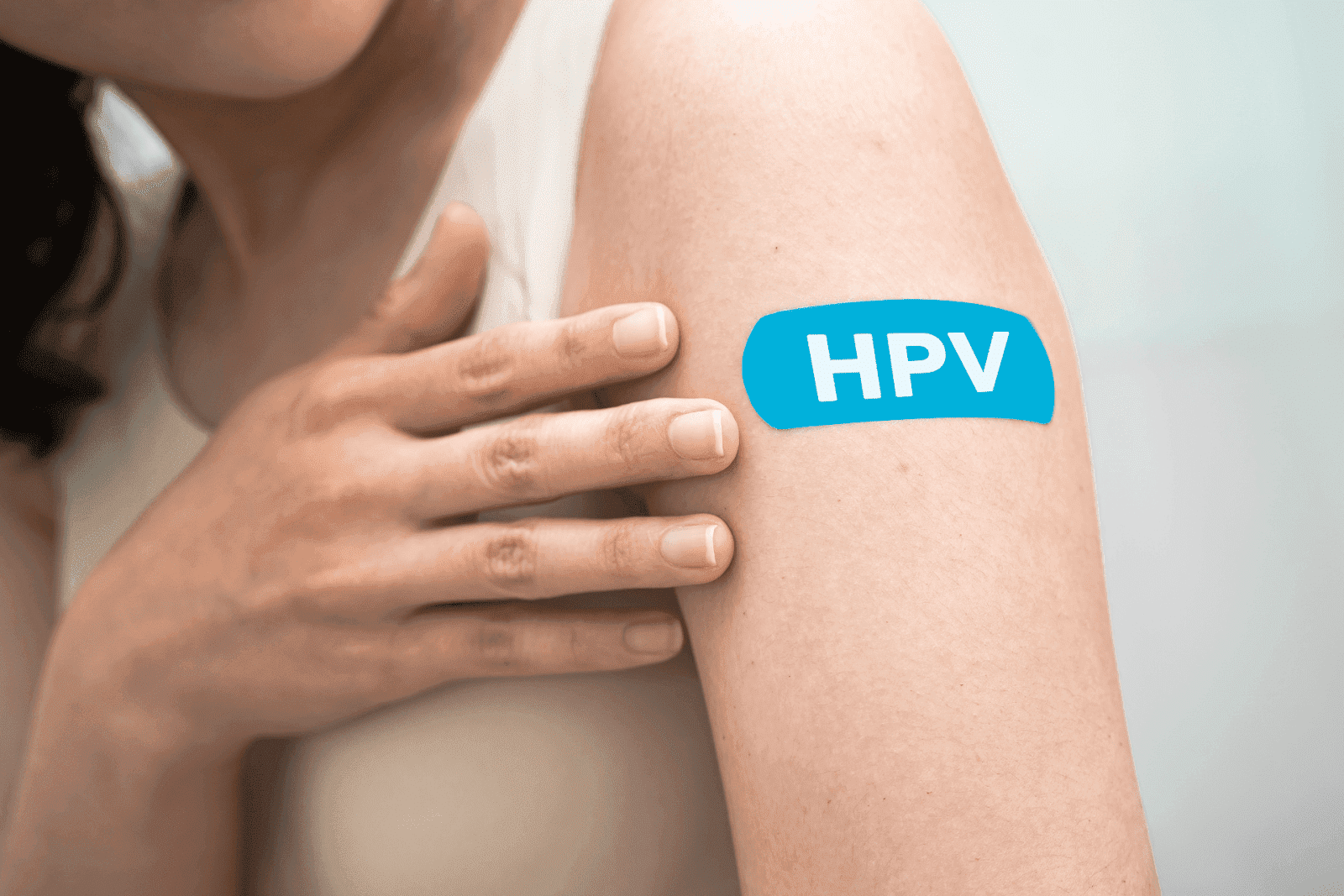Normal Pap, But Positive HPV? What It Means
Receiving results from a Pap smear and HPV test can be a moment filled with questions and concerns. What does it mean if your Pap smear is normal, but your HPV test comes [...]
Read More
Medically reviewed by Alan Lucks | MD, Alan Lucks MDPC Private Practice - New York on October 11th, 2025.
High-risk HPV types (16, 18, 31, 33, 45, 52, 58) cause 70% of cervical cancers, but it typically takes 10-20 years for persistent infection to develop into cancer.
Co-testing with both Pap smear and HPV testing is recommended every 5 years for women ages 30-65, while HPV testing alone can be done every 5 years starting at age 25.
About 80% of sexually active people will contract HPV at some point, but 90% of infections clear naturally within 2 years through immune system response.
Follow-up testing occurs at 12 months—if HPV persists, colposcopy may be recommended to examine cervical tissue more closely for precancerous changes.
HPV vaccination (Gardasil 9) prevents infection from 9 high-risk types and is most effective when given before sexual activity begins, though it's approved through age 45.
Receiving results from a Pap smear and HPV test can be a moment filled with questions and concerns. What does it mean if your Pap smear is normal, but your HPV test comes back positive? This combination of results is more common than many realize, and understanding it is crucial for making informed decisions about your health. This article will explore what these results mean, why they occur, and what steps you can take next. For personalized guidance, consider consulting with a healthcare provider through telehealth services like Doctronic.ai, where AI-powered care is available 24/7.
 Understanding Pap Smears and HPV Testing
Understanding Pap Smears and HPV TestingA Pap smear, also known as a Pap test, is a screening procedure used to detect abnormal cells in the cervix. It helps identify precancerous or cancerous changes early, allowing for timely intervention. During the test, cells from the cervix are collected and examined under a microscope. A normal Pap smear means that no abnormal or precancerous cells were detected at the time of testing. Regular Pap smears are recommended for women starting at age 21, regardless of sexual history, and should be performed every three years until the age of 29. After that, women aged 30 to 65 may choose to have Pap smears combined with HPV testing every five years, or continue with Pap smears alone every three years, depending on their health history and risk factors.
Human papillomavirus (HPV) is a common sexually transmitted infection with many different strains. Some types of HPV are considered high-risk because they can lead to cervical cancer over time. HPV testing detects the presence of these high-risk strains in cervical cells. Unlike the Pap smear, which looks for cell abnormalities, the HPV test looks for the virus itself. It is important to note that while HPV is prevalent, most sexually active individuals will contract it at some point in their lives, and for many, the immune system clears the virus naturally without causing any health problems. However, persistent infection with high-risk HPV types can lead to cellular changes that may progress to cancer, making early detection through HPV testing crucial for preventative health care.
When your Pap smear is normal but your HPV test is positive, it means that high-risk HPV is present in your cervical cells, but there are no signs of abnormal cell changes yet. This is a common scenario since HPV infections are often transient and can clear up on their own without causing any harm. It's important to understand that a normal Pap result is reassuring, as it indicates that there are no current signs of cervical cancer or precancerous changes, even in the presence of the virus.
HPV infections are very common, especially among sexually active individuals. Most people clear the virus naturally within one to two years without any medical intervention. A positive HPV test in the presence of a normal Pap smear indicates that your body has the virus, but it has not yet caused any cellular changes that would be visible on a Pap test. The immune system plays a crucial role in managing these infections, and many individuals may not even be aware they have been infected. Regular screenings, such as Pap smears and HPV tests, are vital in monitoring cervical health and ensuring that any potential issues are caught early.
Furthermore, understanding the various types of HPV is essential. There are over 100 different strains of the virus, but only a few are classified as high-risk, meaning they have the potential to lead to cervical cancer if left unchecked. Vaccination against HPV can significantly reduce the risk of developing these high-risk strains, making it a crucial preventive measure for sexually active individuals. Engaging in open discussions with healthcare providers about HPV, its implications, and the importance of regular screenings can empower individuals to take charge of their reproductive health.
Having a positive HPV test with a normal Pap smear means that your healthcare provider will likely recommend close monitoring rather than immediate treatment. This typically involves repeat testing in 12 months to check if the virus has cleared or if any cell changes have developed. Persistent infection with high-risk HPV over time increases the risk of cervical cancer, so follow-up is essential. It's important to understand that many individuals with HPV will clear the virus naturally, but regular check-ups can help ensure that any potential issues are caught early. During this monitoring period, your healthcare provider may also discuss lifestyle factors that can support your immune system, such as maintaining a healthy diet, exercising regularly, and avoiding smoking, all of which can play a role in your body's ability to fight off infections.
If HPV persists or if future Pap smears show abnormal cells, your provider may recommend a colposcopy, a procedure that allows for a closer examination of the cervix and biopsy of any suspicious areas. Early detection through regular screening is key to preventing cervical cancer. It's crucial to be aware of the signs and symptoms that may warrant immediate attention, such as unusual bleeding, pelvic pain, or changes in menstrual cycles. These symptoms can sometimes indicate more serious conditions, and addressing them promptly can lead to better health outcomes. Additionally, discussing your concerns and any symptoms with your healthcare provider can help you feel more empowered and informed about your health journey, ensuring that you take proactive steps toward maintaining your well-being.
Managing your health and understanding test results can sometimes feel overwhelming. Telehealth services like Doctronic.ai offer a convenient and affordable way to get expert advice from the comfort of your home. Doctronic’s AI-powered platform provides quick, evidence-based answers and personalized care recommendations 24/7, helping you navigate your health questions with confidence.
Doctronic combines the latest peer-reviewed medical research with AI technology to provide accurate, up-to-date information tailored to your unique health history. Unlike traditional telehealth, Doctronic remembers your previous visits and health details, offering a more personal and continuous care experience. This can be especially helpful when managing ongoing conditions like HPV infections, where regular monitoring and timely advice are crucial.
The HPV vaccine is a powerful preventive tool against the most common high-risk HPV strains that cause cervical cancer. It is recommended for preteens but can be given up to age 45. Even if you have tested positive for HPV, vaccination can protect against other strains and reduce the risk of future infections.
 Regular Screening
Regular ScreeningFollowing your healthcare provider’s recommendations for Pap and HPV testing is essential. Regular screening helps detect any changes early, allowing for prompt treatment. Women aged 21 to 65 should have routine cervical cancer screening based on current guidelines.
Maintaining a healthy immune system can help your body clear HPV infections more effectively. This includes eating a balanced diet rich in fruits and vegetables, avoiding smoking, managing stress, and practicing safe sex to reduce the risk of new HPV infections.
Receiving a positive HPV result can cause anxiety and uncertainty. It is important to remember that HPV is very common and often clears on its own. Open communication with your healthcare provider and access to reliable information can alleviate concerns and empower you to take control of your health.
Telehealth platforms like Doctronic.ai provide a non-judgmental, accessible space to ask questions and get support anytime you need it. This can be particularly valuable for individuals who may feel uncomfortable discussing sensitive topics in person.
A normal Pap smear combined with a positive HPV test is a signal to stay vigilant but not to panic. It means that while the virus is present, there are no current signs of abnormal cell changes. With regular monitoring, preventive measures, and access to expert advice through services like Doctronic.ai, you can effectively manage your cervical health and reduce your risk of complications.
Remember, knowledge and timely action are your best tools in maintaining your health. If you have questions or need guidance interpreting your test results, consider reaching out to a trusted telehealth provider who can offer personalized care and support whenever you need it.
Don't let uncertainty about your HPV status cause you unnecessary stress. With Doctronic, you can access the #1 AI Doctor for free and get answers to your health questions in seconds. Our AI-powered platform offers personalized, comprehensive care based on the latest medical research, and our telehealth services provide convenient video visits with our doctors anytime, anywhere. Over 10 million people have already experienced the Doctronic difference. Skip the line and talk to an AI Doctor now, for free, by visiting Doctronic.ai. Your peace of mind is just a click away.
A normal Pap with positive high-risk HPV means your immune system will likely clear the infection within 1-2 years, but annual monitoring is essential to catch any cellular changes early. The key is staying consistent with follow-up appointments rather than worrying about the current result. If you have questions about your screening results or HPV management, Doctronic can provide quick, reliable answers.
Receiving results from a Pap smear and HPV test can be a moment filled with questions and concerns. What does it mean if your Pap smear is normal, but your HPV test comes [...]
Read More